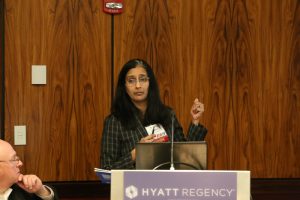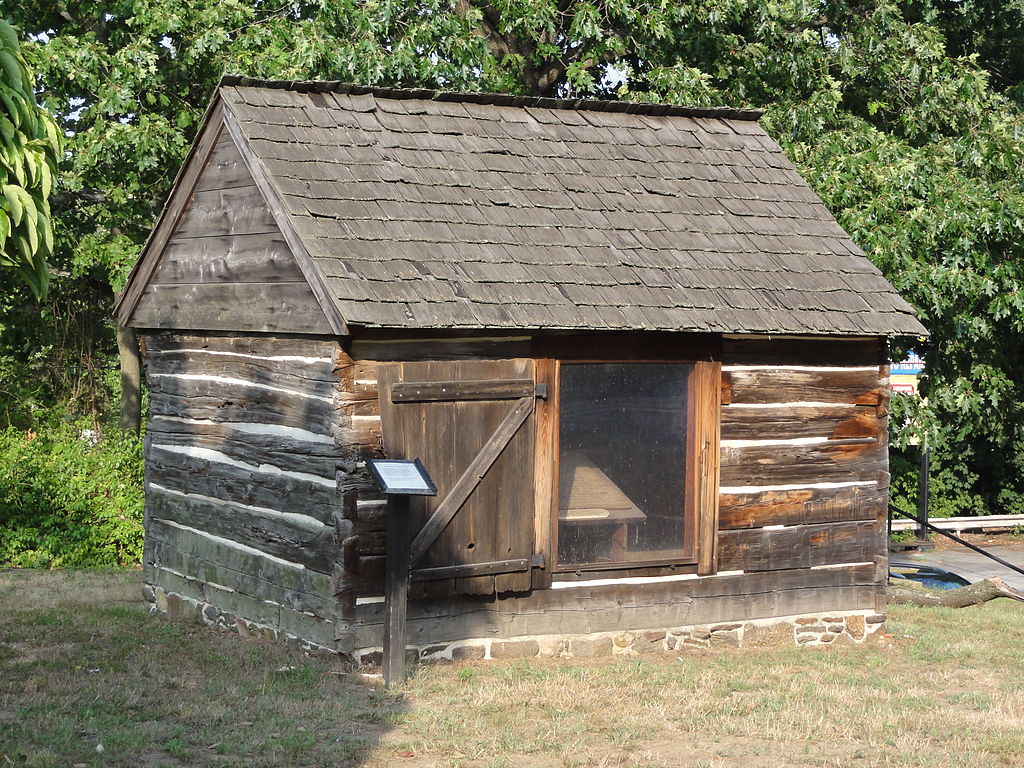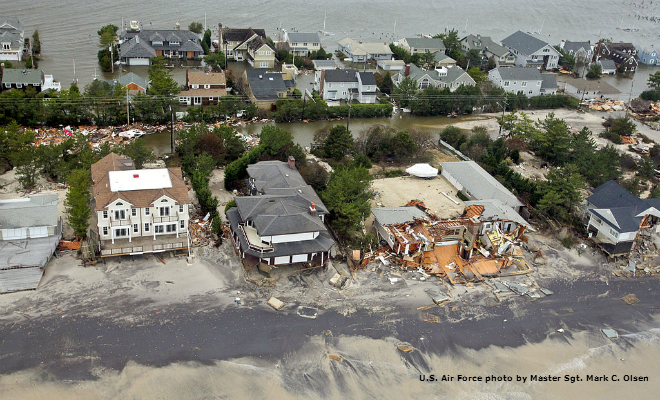New Jersey Future Blog
How Do We Pay for New Jersey’s Aging Stormwater Infrastructure?
April 4th, 2018 by Moriah Kinberg
So how do we pay for New Jersey’s aging stormwater infrastructure?
A panel of experts took on this question at New Jersey Future’s 2018 Redevelopment Forum session on the topic. The resounding answer was by allowing for stormwater utilities to be established in New Jersey. According to the 2017 Western Kentucky University Stormwater Utility Survey, there are now 1,639 stormwater utilities nationally, that operate in 40 states. New Jersey does not have a single stormwater utility.
“We have serious stormwater issues, we have those, but we don’t have money.” Senator Bob Smith kicked off the forum session by talking about New Jersey’s stormwater challenges and why they have not been addressed. “Infrastructure doesn’t vote, and does not have a constituency,” he said, but he thinks that the time has come. In January, he introduced Senate Bill 1073, which authorizes municipalities, counties, and certain authorities to establish stormwater utilities.
“This year it is going to happen,” he exclaimed.
How do stormwater utilities work? The term “stormwater utility” refers to a system of user fees and credits, the revenues from which are dedicated to stormwater management services. This is analogous to how water and sewer revenues are dedicated to the provision of water and sewer utility services. A stormwater utility customer’s rate is usually determined by the amount of impervious surface on the customer’s property, and how much stormwater runoff the property contributes into the system.
“Water is life, and stormwater is beautiful. If you let it run off, you are losing a precious resource” because it is water that can be captured and reused, explained Prabha Kumar, director and national practice leader for Stormwater Utility Consulting Services at Black & Veatch Management Consulting LLC. Stormwater utilities can help pay to upgrade New Jersey’s aging stormwater infrastructure by creating a holistic program, enhancing organizational capacity to deliver services, and providing for equitable cost recovery and funding in the form of dedicated user fees.
Why is it not a tax?
Ms. Kumar explained why a stormwater utility’s charge is a user fee, rather than a tax:
- A fee is commonly used to address a regulatory purpose. Stormwater fees are used to meet Municipal Separate Storm Sewer (MS4) permit regulatory requirements.
- A fee is used to pay for services in exchange for benefits received by the general public. Funds collected through stormwater fees are used directly to pay for stormwater infrastructure and programs that benefit the general public.
- A fee is voluntary, at least in part. The fee is based on an approximation of the amount of stormwater runoff a property generates, which can be controlled through retention/detention and green infrastructure projects.
- A fee is a fair approximation of the costs incurred in providing services. Stormwater fees are used to recover the costs incurred in the management of stormwater.
Equitable cost recovery
Unlike property taxes that have no direct correlation to stormwater runoff, or sewer fees that have very limited correlation to a property’s stormwater runoff contribution, a stormwater utility fee is an equitable method of cost recovery, since users pay according to what they use. Under an impervious area-based fee approach, larger properties pay more based on the larger amount of impervious surface and consequently, greater contribution of stormwater into the system. Many stormwater utilities provide opportunities for an ongoing fee reduction to property owners who implement stormwater management measures on site to reduce stormwater runoff from the property.
“Third try is a charm:” the Newark, Delaware, story
Newark, Delaware, has a population of 34,000 including 23,000 students. It is home to the University of Delaware, it is a Main Street Award winner, and it has been a bicycle-friendly city since 2013. It also has flooding issues and water systems in need of repair.
Tim Filasky, acting director of Newark‘s Department of Public Works and Water Resources, told how, after two failed attempts in 2009 and 2013, they were able in 2017 to pass the needed enabling legislation to implement a stormwater utility. Filasky told how they used images to raise awareness among stakeholders about the issue, and emphasized the need to take economic conditions into account, and to take the feedback from elected officials into consideration. Messaging was a key factor in their success, he said. They made the connection between safe drinking water and water quality and drove home the competition for funds in the existing budget. The Newark stormwater utility is projected to raise $1.4 million annually to improve the city’s stormwater infrastructure.
Tips for messaging
“When you use the word impervious you are further away from solving the problem.” Jon Shure, senior director at Taft Communications, concluded the session with stormwater-utility messaging tips. He suggested starting the conversation with a shared vision for the future of the community, then introducing the problem and ending by discussing the solution. He emphasized the importance of educating and informing, that equity will be critical to the solution message, and that people will want to be part of the discussion.
Shure identified key audiences to engage: developers and corporate tenants, industrial property owners, nonprofits and community organizations, and homeowners. Each group needs a slightly different message, based on specific interests. He finished his presentation and concluded the session by encouraging attendees, “Educate key audiences and persuade them to support the fee.”


















